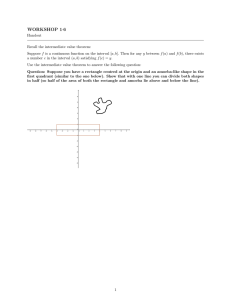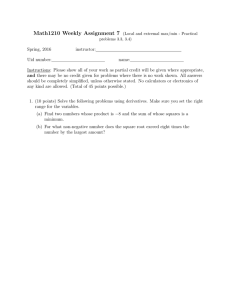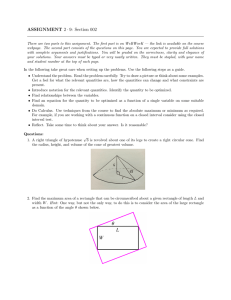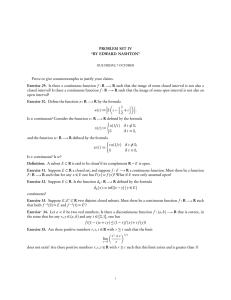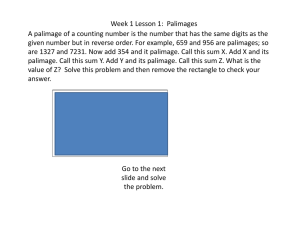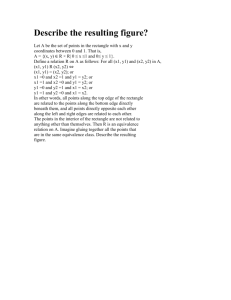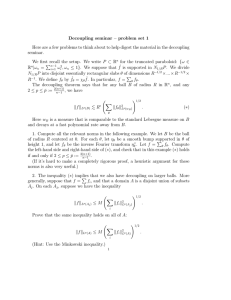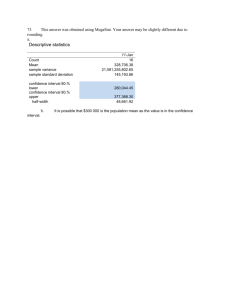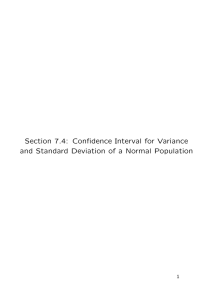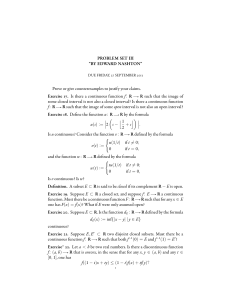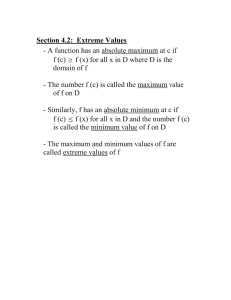Problem set for Math 158, unit on decoupling in Fourier... 1. Locally constant property. Suppose that θ ⊂ R
advertisement
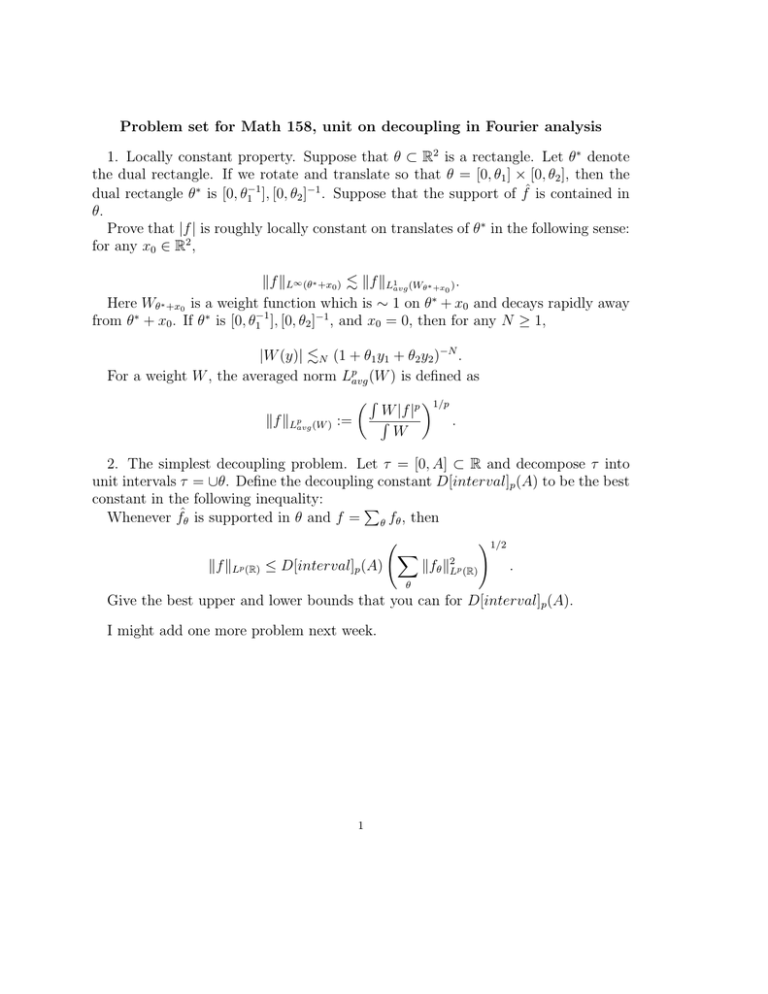
Problem set for Math 158, unit on decoupling in Fourier analysis 1. Locally constant property. Suppose that θ ⊂ R2 is a rectangle. Let θ∗ denote the dual rectangle. If we rotate and translate so that θ = [0, θ1 ] × [0, θ2 ], then the dual rectangle θ∗ is [0, θ1−1 ], [0, θ2 ]−1 . Suppose that the support of fˆ is contained in θ. Prove that |f | is roughly locally constant on translates of θ∗ in the following sense: for any x0 ∈ R2 , kf kL∞ (θ∗ +x0 ) . kf kL1avg (Wθ∗ +x0 ) . Here Wθ∗ +x0 is a weight function which is ∼ 1 on θ∗ + x0 and decays rapidly away from θ∗ + x0 . If θ∗ is [0, θ1−1 ], [0, θ2 ]−1 , and x0 = 0, then for any N ≥ 1, |W (y)| .N (1 + θ1 y1 + θ2 y2 )−N . For a weight W , the averaged norm Lpavg (W ) is defined as R 1/p W |f |p R kf kLpavg (W ) := . W 2. The simplest decoupling problem. Let τ = [0, A] ⊂ R and decompose τ into unit intervals τ = ∪θ. Define the decoupling constant D[interval]p (A) to be the best constant in the following inequality: P Whenever fˆθ is supported in θ and f = θ fθ , then !1/2 kf kLp (R) ≤ D[interval]p (A) X kfθ k2Lp (R) . θ Give the best upper and lower bounds that you can for D[interval]p (A). I might add one more problem next week. 1
